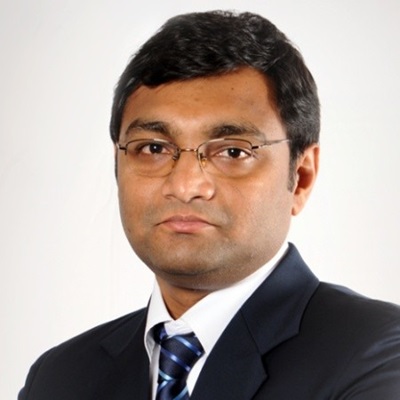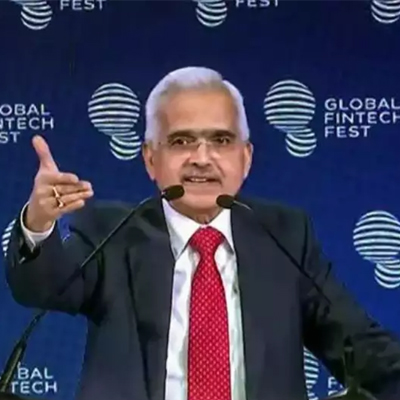Revolutionising Patient Care: The Impact of Digital Transformation in Healthcare

Dr. Makarand Sawant, Vice President at Sahyadri Hospitals
The integration of digital technology in healthcare, propelled by telemedicine, patient lifecycle management, and wearable devices, has ushered in a new era of patient care. This article delves into the profound impact of digital transformation on healthcare delivery, exploring its benefits and implications for both patients and healthcare providers.
The palliative care market in India is forecasted to experience significant growth, with projections indicating an increase from $237.87 million in 2022 to US$548.19 million by 2030. This growth trajectory reflects a notable compound annual growth rate (CAGR) of 11% during the forecast period of 2022-2030.
Over the past decade, India has demonstrated a gradual expansion in its healthcare spending, reflecting a commitment to support its burgeoning population. Notably, healthcare expenditures rose from 2.95% of GDP in 2018 to 3.01% in 2019, underscoring the nation's evolving healthcare landscape and increasing focus on addressing healthcare needs. (source)
"Digital transformation in healthcare is not just about technology; it's about empowering patients, optimizing experiences, and revolutionizing care delivery for a healthier future."
Telemedicine: Redefining Access to Care
Telemedicine and telehealth services have emerged as invaluable tools in modern medical care. These services encompass a broad spectrum of health and technology applications, facilitating remote clinical services and patient care.
According to a recent report by Business Wire, the global market for remote patient monitoring reached a valuation of US$1,866 million in 2021, with projections indicating a substantial growth to US$8,451 million by the year 2031.
From virtual medical appointments to the management of chronic conditions, telemedicine offers a convenient and accessible avenue for healthcare delivery. Particularly beneficial for patients in remote areas, virtual visits not only reduce healthcare costs but also enhance patient engagement and satisfaction. By bridging geographical barriers and providing flexibility in appointment scheduling, telemedicine revolutionises access to quality healthcare.
Patient Lifecycle Management: Optimising Patient Experiences
Patient lifecycle management stands at the forefront of delivering personalised and streamlined healthcare experiences. This comprehensive approach encompasses quality clinical care, personalised attention, and seamless patient engagement between appointments. Through electronically managed records and centralised information systems, healthcare providers gain access to up-to-date patient information, leading to more informed decision-making and improved care outcomes. Patients benefit from smoother experiences, reduced uncertainty, and enhanced communication with their healthcare providers. By understanding the entirety of a patient's health picture, providers can offer tailored care strategies and achieve better disease management outcomes.
Wearable Devices and Remote Monitoring: Empowering Patients and Providers
The rapid advancement of wearable devices and remote monitoring technology heralds a paradigm shift in healthcare management. These devices offer real-time monitoring of physiological parameters, ranging from activity levels to vital signs, enabling early detection, diagnosis, and disease management.
Wearable devices equipped with health sensors are revolutionising healthcare and empowering consumers to take proactive control of their well-being. In 2022, the Indian wearable market experienced a remarkable year-on-year (YoY) growth of 46.9%. This impressive trajectory surged even further in Q1 2023, soaring to 80.9%, with a staggering 25.1 million wearable units shipped in the first quarter alone. The market remained in alignment with IDC's forecast, showcasing a robust 53.3% year-on-year (YoY) growth in the initial half of 2023, with a total shipment of 57.8 million units. (source)
This substantial increase reaffirms the upward trajectory of the wearable technology market, underscoring its growing prominence and widespread adoption across various consumer segments. This exponential rise underscores the burgeoning popularity and rapid adoption of wearable technology among Indian consumers, marking a significant shift in health and lifestyle management practices, and shaping the future of healthcare delivery and individual health management.
With the integration of artificial intelligence (AI) and machine learning, wearable devices can analyse vast amounts of data to identify patterns and provide personalised insights into health behaviours. From tracking physical activity to monitoring medication adherence, wearable devices empower patients to take control of their health while providing healthcare providers with valuable insights for proactive intervention and personalised care.
Way Forward
As digital transformation continues to reshape the healthcare landscape, its impact on patient care cannot be overstated. From telemedicine and patient lifecycle management to wearable devices and remote monitoring, digital technologies offer unprecedented opportunities to enhance access, optimise experiences, and empower both patients and healthcare providers. By embracing these innovations, the healthcare industry can pave the way for a future where personalised, efficient, and patient-centric care is the norm, revolutionising the way we approach healthcare delivery and management.
The Journey into Industry
Dr. Makarand Sawant, a distinguished figure in the realms of technology and business, epitomizes excellence and innovation in digital transformation. With an illustrious career spanning over 25 years, Dr. Sawant has demonstrated visionary leadership and profound expertise in leveraging cutting-edge technologies to automate and optimize multi-billion dollar enterprises. Armed with a PhD in Analytics, he has spearheaded numerous initiatives aimed at driving sustainable business practices, operational efficiency, and customer-centric solutions.
As the Vice President of Information Technology at Sahyadri Hospitals, Dr. Sawant orchestrates digital transformation strategies that enhance business continuity, operational efficiency, and omnichannel customer experience. His strategic acumen and leadership have been instrumental in implementing the Digital Transformation initiatives, revolutionizing healthcare delivery.
Dr. Sawant's contributions extend beyond organizational boundaries, as evidenced by his role as a panellist, speaker, and prolific writer on technology and business use cases. He has been honoured with over 75 national and international awards for his innovations and contributions to the field, earning him the esteemed title of India's Top Eminent IT Digital Leader.
A trailblazer in the digital landscape, Dr. Makarand Sawant continues to push the boundaries of possibility, driving transformative change and shaping the future of technology-enabled business solutions.
.jpg)
.jpg)
.jpg)
.jpg)



